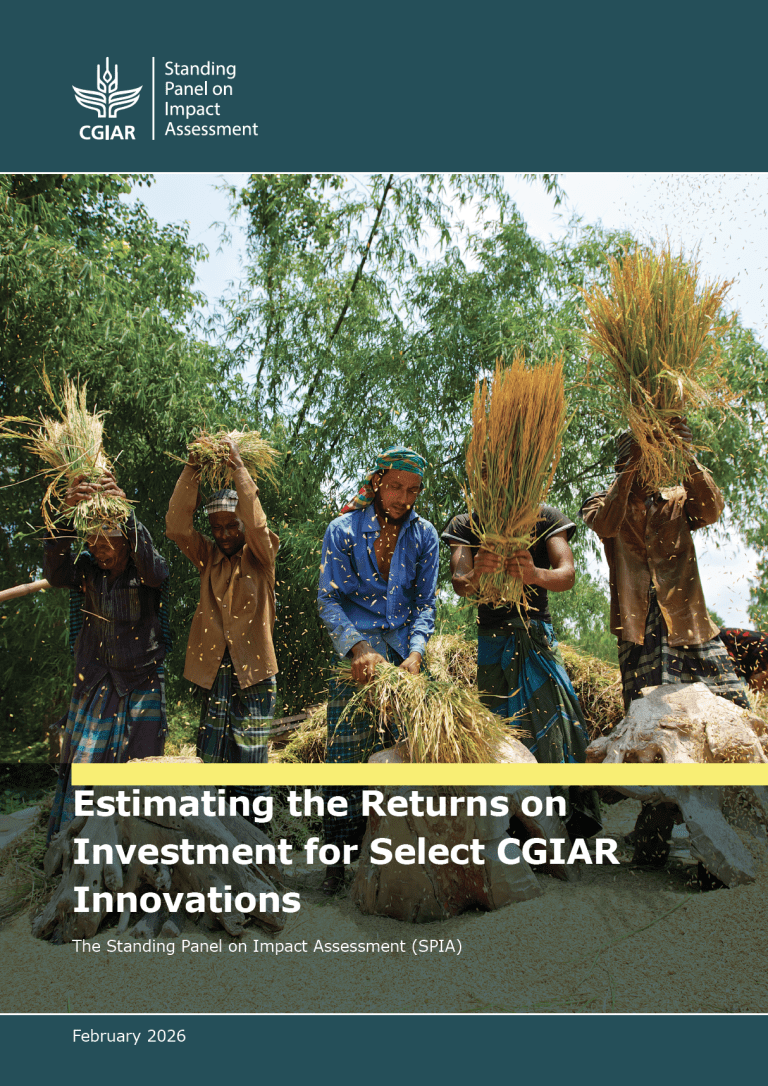Highlights:
- Climate change will bring about more stochastic weather events.
- There are useful technologies that increase farmer resilience to such weather shocks.
- Technologies that protect against stochastic shocks face unique adoption challenges.
- Bundling different types of technologies can resolve some of these challenges.
Climate change is likely to hit smallholder farmers particularly hard as they tend to be especially vulnerable to extreme weather events. In this context, stress tolerant crop varieties may be potent innovations to increase resilience among smallholder farmers. Paradoxically, the same features that make such crops so promising raise distinct adoption and scaling challenges.
From the smallholder farmer perspective, the decision to invest in stress tolerant crops is complicated. The genetic composition of the seed is not a visible feature that can be assessed beforehand, and it will only demonstrate benefits compared to other seeds if the stress it was bred to withstand actually occurs. In the case of seeds protecting against specific random weather conditions (e.g., drought), it may be several seasons before the farmer has the chance to see the technology “in action”. Farmers who adopt one season may choose to disadopt the next if the target shock doesn’t occur and the stochastic benefits are not revealed to the farmer.
This on-farm learning challenge is amplified by the fact that stress tolerant varieties typically only protect against a specific subset of extreme weather events. Even slight deviations from these specific target events may render stress tolerant varieties indistinguishable from other varieties. For a farmer who has never witnessed the stochastic benefits evident under “ideal bad conditions”, this can generate noise in the learning process, undermine trust in the technology, and trigger disadoption (for the conceptual underpinnings of this learning challenge see this 2010 article).
In a recently published paper together with Stephen R. Boucher, Michael R. Carter, Jon Einar Flatnes, Jonathan G. Malacarne, Paswel P. Marenya and Laura A. Paul, Travis tackles this challenge empirically and rigorously evaluate a potential solution to this challenge in the case of drought tolerant maize. These drought tolerant varieties were bred to protect farmers against moderate mid-season drought, which the study shows can have long-lasting negative effects on farmer resilience. The study looks at primary subsistence and semi-subsistence farmers in Mozambique and Tanzania and finds that drought tolerant maize enhances resilience in the immediate and mid-term.
However, as Jonathan Malacarne put it at a recent SPIA webinar, while these improved seeds are drought tolerant, they are not fully drought proof. The seeds were bred to withstand drought in the pollination phase of the maize growing cycle, but they do not perform if the drought arrives at a different time or if it is too severe. This provides a challenge for scaling efforts since it means that a farmer who invests in drought tolerant seeds may still face reduced yields as a result of severe drought. A farmer who has never seen the drought-tolerant seeds perform under moderate drought conditions when such a severe drought occurs is of course likely to disadopt in subsequent seasons.
The study addresses this challenge by bundling the genetic technology with satellite-based agricultural index insurance. The latter was designed to complement the drought protection provided through drought tolerant seeds, covering specifically the drought risks that the seeds were not bred to withstand. Complementarities of the two technologies make it possible to offer a fuller coverage at a lower price than each technology could in isolation.
The study finds that the bundle of technologies mitigated the effects of the drought shocks. Additionally, farmers who experienced drought shocks and were protected by the bundle increased their investment in the bundle, showing the importance of learning from experience with the technologies. The learning challenge was also clearly evident in the results: farmers who did not experience any drought shocks reduced investment in the bundle in following seasons.
While it seems that bundling different technologies together can solve some of the learning and trust challenges for adoption of climate adapted crops, successful scaling strategies will have to account for the risks of disadoption in periods where no extreme events occur. Until farmers converge on an effective long-run strategy for protecting against drought shocks, which may include novel bundles of financial and genetic technologies, we may see erratic short-run swings of adoption and disadoption. In this sense, stress tolerant varieties – promising as they are – are quite different than the improved varieties of the past that produced higher yields in most growing conditions and thereby simplified farmers’ learning problem.



